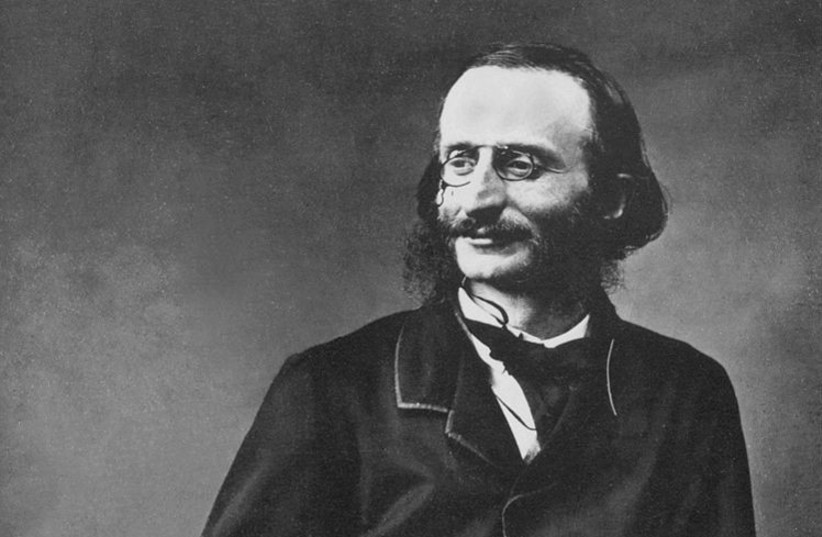The Tales of Hoffman
The Israeli Opera, Tel Aviv
November 7
The poet Hoffman (Charles Workman) is tormented. His beloved Stella, an opera singer, performs Mozart’s Don Giovanni outside the inn he sits at. He is not alone, with him are his friend Nicklausse (Anat Czarny), his dark rival Lindorf (Vito Priante) and friends. They beseech him to sing a new song and tell a new tale. As they raise their cups, Hoffman spins a complex series of stories about three women he loved. The mechanical doll Olympis (Hila Fahima), the singer Antonia (Alla Vasilevitsky) and the courtesan Giulietta (Elinor Sohn).
Will the progression of doomed love affairs end in triumph when Stella returns? Nicklausee and Lindorf are both not as Hoffman believes and in this opera, even a humble servant (Vincent Ordonneau as Pittichinaccio) has a series of Chinese-box-like surprises tucked behind his meekness.

Set to music by Jacques Offenbach, the opera is loosely based on stories penned by E.T.A Hoffman with one major difference: Offenbach placed Hoffman as the protagonist and in so doing the opera becomes a vehicle through which the complex relationships between art and life in the modern age are explored deeply and imaginatively.
The Tales of Hoffman functions in relation to the greater heritage of opera. As they wait, Nicklausse jokes in Italian “Notte e giorno faticar” [Night and day I work hard]. This is both a reference to Don Giovanni in which it is a famous aria and a hint. Nicklausse is not really human but a role played by Hoffman’s muse, which indeed works hard for a master who can never be satisfied.
Hoffman is a heavy drinker and fails to see the obvious. He is constantly met with a rival who takes on many forms, at times, he is a medical doctor who plays a role in Antonia’s death and at others, he seems to be the devil himself. Yet unlike the devil Mozart depicted, who summoned Don Giovanni to hell as punishment for his debauchery, Lindorf is a limited devil who can be conned by humans.
His fascination is with technology. “I have eyes, real eyes,” he sings, “living eyes, eyes of fire” [J’ai des yeux aria] with which he dupes Hoffman and lures him away from his muse. In a beautifully staged scene, Hoffman is aided by his foe before dueling with a rival, Schlemil (Oded Reich).
Conservative productions have the devil hand over a sword, as it would be magical in nature and assure victory. Under director Stefano Poda we are offered a surprise, as the two groups meet each other on stage like two gondolas, the devil gives Hoffman his fist. As Hoffman strikes, his rival slowly drops to the floor in agony. It is a sensitive, imaginative reading of this operatic scene.
This is but a tiny fragment of the wealth Poda gives the audience. Traditional productions have Hoffman galloping across the stage, chumming it up with drinking pals while singing of the deformed Kleinzach during the Il était une fois à la cour d’Eisenach aria. Poda placed Workman in an ingenious spinning room. Cut off from human connections, Workman delivers a stunning performance of this aria while trapped in a moving chamber.
The theme of isolation repeats in one of the crowning moments of the opera. Encased in a glass box, almost motionless, soprano Hila Fahima amazed those seated with a brilliant performance of Les oiseaux dans la charmille [The birds in the hedges]. The brilliance of having a mechanical device express feminine love is entirely Hoffman; to offer us an aesthetic terror of a mechanical, enticing age with many creative souls encased in isolation behind screens is Poda.
‘The Tales of Hoffman’ was seen at the premier, Monday, November 7. The roles alternate and are sung in French with Hebrew and English subtitles. Please note the opera is a long one, three and a half hours, with two intermissions offered. The final performance will be held on Friday, November 18 at 1 p.m.
The Israeli Opera is located at 19 King Saul Boulevard, Tel Aviv.
For more information, visit: www.israel-opera.co.il/eng or call 03-692-7777.
